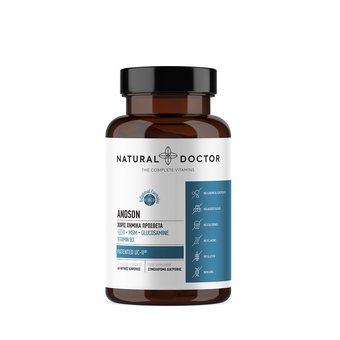How to support joint function and a healthy range of motion

When we think of joint support, we usually think about the important, movable joints such as the shoulder, elbow, hip, knee, and those found in the hands and feet. The limited range of motion we may experience in some of them can seriously affect daily activities.
An estimated 24 percent of adults experience joint problems such as arthritis, osteoarthritis, gout, lupus, and various other related problems related to joints.
Although medication is often necessary, as well as physical therapy, some small lifestyle changes can help maintain a healthy range of motion in the joints.
Starting with the basics
You may have heard it a million times already. Still, daily exercise is essential to maintaining and improving health throughout life. Exercise and movement are necessary for healthy joints.
Maintaining the muscles surrounding the joints strong helps stabilize them and supports a normal range of motion. Movement also increases blood circulation to joint tissues and increases the activity of synovial fluid, which lubricates the joints.
If you want to increase or maintain your range of motion, then exercise is an essential first step. If you are already dealing with a joint tissue condition, then stick to lower-impact exercises such as swimming, cycling, or rowing.
Another key to joint health is achieving or maintaining a healthy weight. The pressure created by weight on joints, like the knee, is between three and six times your actual weight. That means that for every extra 10 pounds the body weighs, the knees support 30-60 pounds of extra pressure.
One study showed that in obese women, for every 11 pounds of weight loss, the risk of knee osteoarthritis decreased by more than 50 percent.
The spine is estimated to bear four times the load pressure per kilogram of body weight. So for every five pounds you lose, you relieve 20 pounds of pressure off your spine.
Foods rich in omega-3 fatty acids, such as fish, nuts, and seeds apart from overall health also support healthy joints.
Nutrients that support joint health:
Although there are many excellent options for supporting joint health, the most suitable are the following:
- UC II ®. Supplementing the diet with the unique, patented ingredient UC II ® can increase the concentration of beneficial proteins in joint cartilage, which helps absorb and lubricate joints and support movement. By eliminating the production of inflammatory cytokines, UC II ® can reduce joint stiffness and pain.
- Glucosamine. Glucosamine is an important compound found in cartilage. Glucosamine supplementation helps maintain and protect healthy joint structures and supports mobility.
- Chondroitin. Like glucosamine, chondroitin is a compound found naturally in joint cartilage. Chondroitin and glucosamine work together to protect joint structures from degradation.
- Methylsulfonylmethane (MSM). MSM provides antioxidant support and helps maintain normal inflammatory responses in the joints. MSM also plays a role in producing collagen and glucosamine and supports other ingredients often found in joint support formulations.
If you have sustained an injury or experience joint pain, stiffness, or discomfort, then you might need to take a different direction of joint support.
In fact, you may need a nutritional supplement that has it all. The nutritional supplement Anoson offers comprehensive support to the joints because it includes all four scientifically studied ingredients: UC II ® chondroitin, glucosamine, and MSM.
Move freely today and for years to come, with a balanced diet, an exercise program, and the right nutritional supplement, depending on your individual needs.
If you need help finding which nutritional supplement options are suitable for you, take our health test, which is designed to help you discover the supplements to fill the gaps in your daily nutrition.



